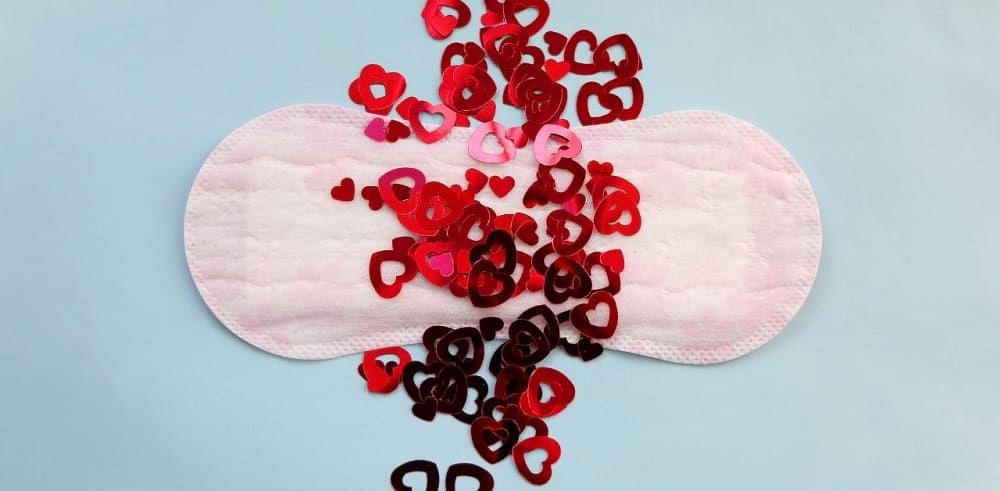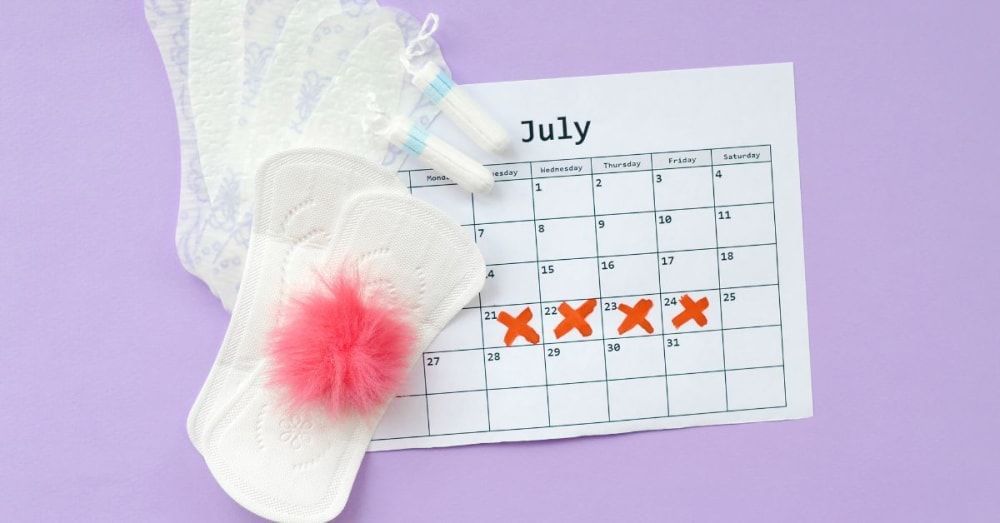Women menstruate for an average of 25 years of their life. As painful or annoying as they can be, periods serve as a monthly check of your health. The quantity of blood lost during each period may be scanty or heavy, along with the varying length of each cycle.
The most frequently asked question is, “how to make your period flow heavier?” Let’s address that question today, as answered by gynaecologists.
How to Increase Blood Flow During Periods?
Trying to increase your blood flow during periods can be tricky. Your body naturally regulates your cycle based on your overall health. If you are looking for an answer on how to increase blood flow during periods, then consider the use of emmenagogues.
These are herbs that increase your blood flow to the uterus and pelvic region while also triggering menstruation.
Here are common foods that can increase blood flow during periods:
1. Beetroot Juice
If you want to know how to make your period flow heavier, you must try beetroot juice. Iron, calcium, vitamin A, vitamin C, potassium, manganese, folic acid, and fibre are abundant in beetroot. Drinking beetroot juice can improve blood circulation and blood flow during menstruation. In addition, consuming beetroot juice can significantly raise haemoglobin levels, making your periods heavier.
2. Chocolate
Want to know how to increase blood flow during periods immediately? Here is something for you. Chocolate can induce periods if you experience irregular periods.
It contains vitamins and minerals such as iron, copper, protein, vitamin E, and calcium that aid blood flows regulation during periods. Menstrual discomfort and pain are known to be relieved with dark chocolate.

3. Jaggery
Jaggery contains 11 mg of iron per 100 g, which helps increase blood flow during periods. Many of the elderly would recommend jaggery if you ask them how to increase blood flow during periods immediately. This is because it is a heat-inducing food.
4. Coconut
Consuming shredded coconut with jaggery is the quickest and safest way to increase period flow. Iron content in coconut is 2.4 milligrams per 100 g. Both jaggery and coconut increase the blood flow during your period.
5. Spinach Juice
Spinach is a green leafy vegetable, beneficial for health due to its vitamin K content. Consuming spinach juice will help normalise your blood flow if you have irregular periods.
6. Sesame Seeds
Iron, phosphorus, magnesium, copper, and manganese are all abundant in sesame seeds. The commonest solution on how to increase blood flow during periods is a dessert prepared with the combination of sesame seeds and jaggery. Since both are heat-inducing foods, they will regulate and enhance blood flow.

7. Cinnamon
The best spice to use when looking for how to increase blood flow during periods is cinnamon. It is known to treat irregular periods, and a study revealed that it helped women with PCOS manage their menstrual cycles effectively. Cinnamon is a warming spice that regulates menstrual cycles and balances hormones with its warming effect on the body.
8. Turmeric
Another home remedy for boosting blood flow during your period is turmeric. Due to its healing impact on the body, the spice aids in menstrual regulation and hormonal balance.
9. Unripe Papaya
Unripe papaya is another fruit that increases period blood flow. It helps in constricting the muscle fibres in the uterus, which controls the menstrual flow. Eat papaya along with coconut water to keep your body cool.
Another common query is how much time it takes to bleed after eating papaya? Well, papaya takes 24-72 hours to induce menstrual bleeding after consumption.
10. Pineapple
Manganese, vitamin C, copper, vitamin B1, folate, vitamin B6, and pantothenic acid are abundant in this fruit. These nutrients constrict the uterine muscles and help increase your period flow while improving blood circulation.\

Other Ways to Increase Blood Flow in Periods
If you are thinking about how to make your period flow heavier with methods other than certain foods, here are some helpful tricks —
1. Exercise
Exercise during your periods might help you maintain healthy body weight and kickstart your flow. The more leaping, jumping, jogging, and other aerobic activities you do, the heavier your flow will be.
2. Yoga
Doing yoga during your period might help with menstrual blood flow and mood swings. While not scientifically established, yoga is known to be effective in numerous cases.
3. Hydration
Your menstrual flow consists of blood and other fluids. The liquid fraction of blood is around 90% water. Your blood will be thicker and less likely to flow out of your body if you are dehydrated.
If you consume beverages such as coffee or alcohol, exercise heavily, or live in a tropical area, your body needs extra water. Staying hydrated is the best way to increase bleeding during periods.

How Regular Is Your Period?
It is essential to ascertain whether your periods are regular or not. Typically, a woman’s period cycle length is anywhere between 21 and 35 days. The flow might last anywhere from two days to a week.
The only time you should not expect a period physiologically is when you are pregnant or after reaching menopause. If you experience irregularities in your periods, then it is vital to consult your gynaecologist.
What Are the Possible Causes for Abnormal Menstrual Pattern?
Abnormal periods can be due to a variety of factors, ranging from stress to more serious medical conditions.
1. Stress
Stress, mental and physical, is a significant contributor to the irregularity of your monthly cycle. Any kind of stress can alter your period length and the amount of bleeding.
2. Diet
A poor diet contributes to irregular cycles. If you have been consuming a less nutritious diet, then you may experience menstrual irregularities.
3. Sleep
Your sleeping habits directly contribute to your menstrual health. Hormones fluctuate based on your sleep duration.
4. Birth Control Pills
Menstruation can be affected by going on or off birth control pills. Consult your doctor before you start taking birth control pills.

5. Poor Blood Circulation
Poor blood circulation might cause scanty menstruation. Eating more “bad fats” (LDL cholesterol) as part of your diet may form cholesterol deposits in the arteries. The blood flow gets obstructed by these deposits, causing scanty flow.
Summing Up on How to Increase Blood Flow During Periods
Periods are a natural occurrence in a woman's body, with vaginal bleeding lasting 2-7 days per month. Every cycle, the body prepares for pregnancy, and if there is no pregnancy, the uterus begins to shed its lining, released in the form of blood.
Various factors contribute to irregular periods, delayed cycles, and light bleeding. Foods like turmeric, ginger, cinnamon, jaggery, coconut, pineapple, papaya, and beetroot can help in inducing bleeding and increasing your flow.
You should include extra fibre and iron in your daily meals and consume as many fruits and vegetables as possible.
In addition, adequate nutrition, hydration, yoga, and exercise are always essential for a healthy body. These provide everything you need to resolve menstrual issues. If the condition persists, seek medical assistance.

FAQs
How Much Time Does It Take to Bleed After Eating Papaya?
Papaya is rich in potassium, folate, vitamin A, and vitamin C. Regularly eating papaya helps constrict the uterine muscles. The popular answer you will get when asking how to increase blood flow during periods immediately is consuming papaya.
Papaya not only creates heat in the body, but the fruit also contains carotene. The estrogen hormone levels in the body get stimulated by carotene. Your period becomes more regular after eating papaya.
If you want to trigger bleeding, you must consume unripe papaya at least 2-3 days before your cycle’s expected start date.
What Is the Reason for Less Bleeding During Periods?
Menstrual flow is unique to every woman. This flow fluctuates slightly every month and changes over time. A woman’s period may get lighter as she ages. Women in their late 30s and early 40s may experience heavier or scanty periods. During perimenopause, periods often become scanty and more irregular.
A woman’s menstruation may be irregular if her body does not release an egg. Women who are underweight or who lose weight rapidly may experience less bleeding during periods.
In addition, the menstrual cycle can be affected by medical conditions that impact a person's hormones, like thyroid conditions, polycystic ovary syndrome (PCOS), perimenopause, and Cushing's syndrome.
Do Light Periods Mean Infertility?
A light period isn't something to be concerned about in most circumstances. It is perfectly fine if you have always had a scanty period or one on the short side from the beginning. This should not bear an effect on your chances of becoming pregnant.
However, a lighter period may hint at hormonal abnormalities such as polycystic ovary syndrome (PCOS) or thyroid concerns and might be associated with reproductive troubles.
Light menstruation might indicate that the uterine lining isn’t as thick as it should be for the optimum likelihood of conception. Such disruptions in the body may affect your fertility.
Is It Normal to Have Short Periods?
While it might be an early symptom of pregnancy or ectopic pregnancy, there are a variety of other things to consider, such as lifestyle choices, birth control, or a medical condition.
Breastfeeding might cause a period to be lighter or shorter. Prolactin, a hormone that aids breast milk production, suppresses menstruation.
Birth control tablets contain hormones that can alter the thickening of the uterine lining. This might make your period lighter and shorter. In addition, changes in your daily routine and other lifestyle factors might impact the length of your period.
If you are worried about your menstrual cycle being shorter than usual, make an appointment with your gynaecologist. They can assist you in determining what is causing the change and, if necessary, begin therapy.
References
Cinnamon Extract on Menstrual Cycles in PolyCystic Ovary Syndrome (PCOS) - https://clinicaltrials.gov/ct2/show/NCT01483118
Mohd Zahoor ul Haq shah, March 2022; Turmeric extract alleviates endocrine-metabolic disturbances in letrozole-induced PCOS by increasing adiponectin circulation: A comparison with Metformin - https://www.ncbi.nlm.nih.gov/pmc/articles/PMC8717583/
Susan Arentz, December 2018; Herbal medicine for the management of polycystic ovary syndrome (PCOS) and associated oligo/amenorrhoea and hyperandrogenism; a review of the laboratory evidence for effects with corroborative clinical findings - https://www.ncbi.nlm.nih.gov/pmc/articles/PMC4528347/
Lei Dou, October 2018; The effect of cinnamon on polycystic ovary syndrome in a mouse model - https://www.ncbi.nlm.nih.gov/pmc/articles/PMC6194596/











